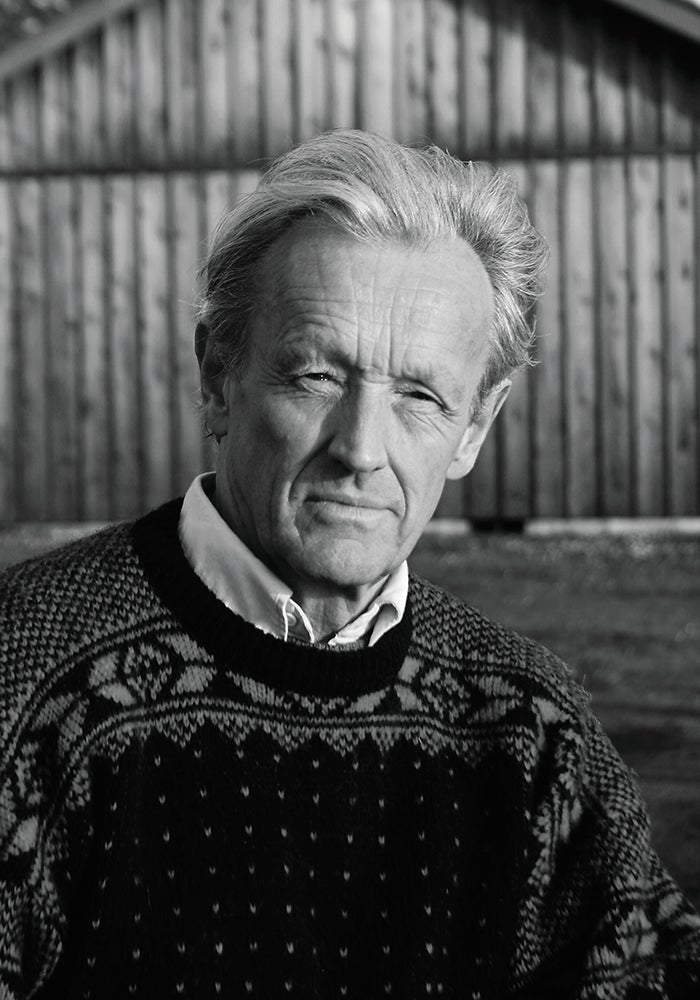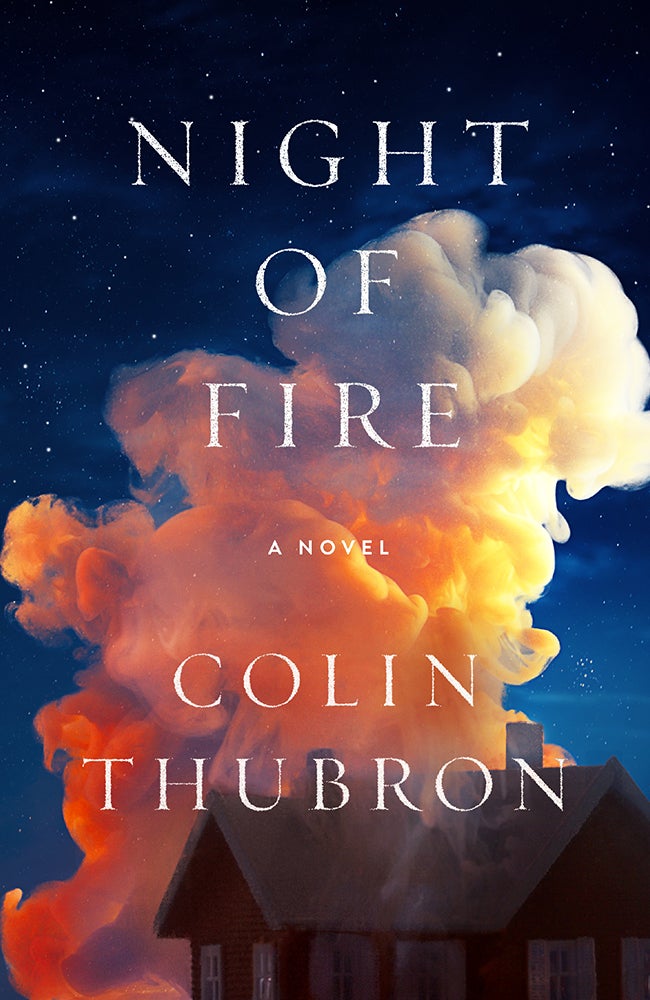Colin Thubron has made a name for himself writing about brutal solo adventures. He looks the part: in , he appears to have just been punched in the face but is either too cool, too rugged, or too pickled to respond with anything but a swaggering smile. On the page, however, his observations are sharp and betray his deep sense of curiosity, and he fashions his many fascinations into prose that reads like poetry. All of this makes Thubron one of our greatest living travel writers, known for masterworks of the genre like Shadow of the Silk Road, Lost Heart of Asia, and In Siberia. He’s also president of the Royal Society of Literature and a Booker-longlisted novelist. In his 77 years, Thubron has wandered most of the earth and authored 18 books. His latest novel, Night of Fire ($27; ), feels like a culmination of that career.

The plot is structured around a building that’s burning down. Each chapter alternates between first person in the past tense and third person in the present. One by one, Thubron’s omniscient narrator focuses on a single resident and the memories that flood his or her mind as the fire sucks oxygen from the air and mental life is extinguished. A priest recalls his struggles with doubt in the seminary, on Mount Athos, and in Rwanda during the genocide. An amateur lepidopterist remembers her troubled family and the human connections she made during her one butterfly hunting adventure. A former schoolteacher reflects on the compulsions that pushed him into a lifetime of travel.
Each character expresses a need to record the life passing them by, to save the signifiers of memory and self they keep around them. When one tenant wakes to realize there’s a fire, he takes mementos from his 50 years of traveling and throws them out the window. Likewise, Thubron’s travel books—full of over-lush, logomaniacal prose—give the impression that the thing he would save first in a blaze would be his notes. The volume of detail in his nonfiction is overwhelming, as if Thubron is in a rush to capture the entirety of a world that he feels is slipping away.

In Night of Fire, it’s clear that Thubron hasn’t lost this love of details, but he has come to conclusions that supersede the details in importance. There is a strange recurring focus on the nature of God in this book—strange because Thubron’s previous book, To a Mountain in Tibet, was about processing the death of his mother, the last of his relatives, in the absence of religion. If Thubron has chosen a God, though, it’s a deity that’s been on the outskirts of all his writing: the God of the road, which unfurls itself before him in the perceptions of memory and the moment. “Think of it like a journey,” the burning building’s landlord tells himself, having realized the approaching inevitability of expiration by fire, as he shovels sleeping pills into his mouth.
Throughout the book, memories of travel and the road offer Thubron’s characters a semblance of solace in the face of death. The last thing the former teacher remembers is his final journey into a remote wasteland. On his way “through this wilderness of boulders and skeletal trees, towards a horizon that had misted away,” the man nearly collides with a sanyassi, a holy man whose religion commands him to wander forever and whom the traveler at first mistakes for his mirror image. “The skyline would recede before him,” Thubron writes, “until he stepped from his path to die.”
One of the tenants, the priest, remembers a night in Rwanda when he woke to find himself walking barefoot. “I stopped dead,” he remembers. “Above the unlit camp spread the African stars. Nothing familiar shone there…The heaven of the northern hemisphere had become an ice field of unknown constellations, multiplying their millions into a haze of alien light. I went on gazing up in emptied fascination.” In moments like this, it seems that after a lifetime of scraping for individual meaning in a wealth of details, Thubron has accepted that each life is just a fleeting aspect of this vast universe, far beyond the comprehension of one man, or even a building full of memories.


